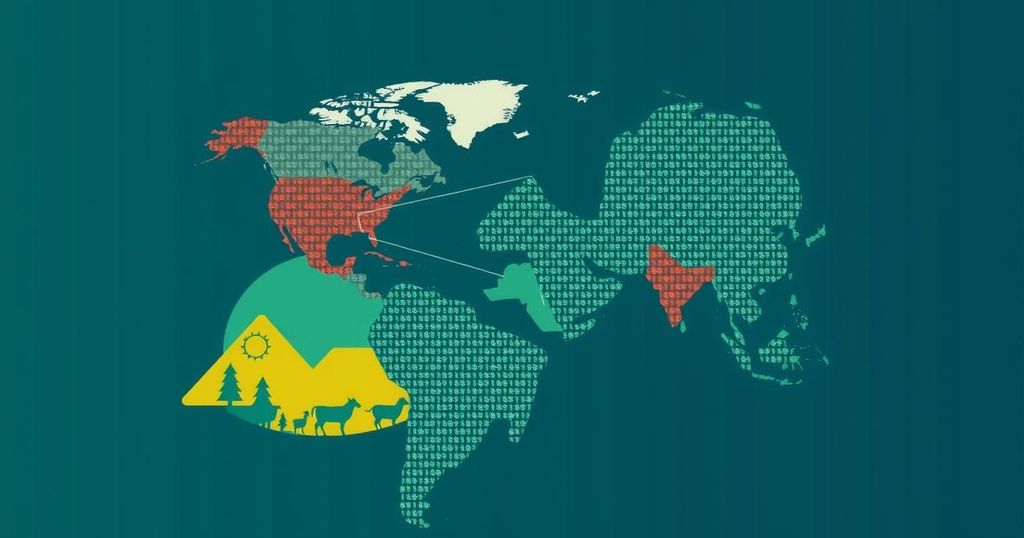The COP29 climate finance agreement has been reached, committing wealthy nations to contribute $300 billion annually by 2035 to aid poorer countries in addressing climate change, a figure criticized by developing nations as inadequate compared to their demand of $500 billion. Despite frustrations and threats to withdraw from negotiations, participating nations reached a deal that acknowledges the ongoing challenge of achieving the necessary funds, with a broader target of $1.3 trillion envisioned for climate resilience.
On November 24, 2023, an exhausting two-week negotiation culminated in a contentious climate finance agreement during COP29, held in Azerbaijan. The accord obliges wealthy historical polluters to allocate $300 billion annually by 2035 to assist poorer nations in mitigating and adapting to climate change. This represents an increase from the current commitment of $100 billion, although it still falls significantly short of the $500 billion demanded by developing countries, which have voiced their frustration over what they consider an inadequate response to the climate crisis.
During the marathon negotiations, representatives from nearly 200 nations labored under intense pressure. Despite developing countries’ threats to walk out due to the unsatisfactory financial offer, they ultimately refrained from obstructing the agreement. India’s delegate, Chandni Raina, articulated a shared sentiment of disappointment, describing the deal as an “optical illusion” that fails to address the severity of climate challenges. Other officials from developing nations echoed similar frustrations, highlighting a perceived lack of commitment from wealthier countries.
Notably, UN climate chief Simon Stiell acknowledged the imperfections of the deal, stating, “No country got everything they wanted,” while UN Secretary-General Antonio Guterres expressed a desire for a more ambitious outcome. Conversely, U.S. President Joe Biden hailed the agreement as a “historic outcome”. The deal aims for a broader target of $1.3 trillion annually to manage climate-related issues; however, the majority of this funding is expected to derive from private sources rather than direct governmental contributions. The negotiations were further complicated by expectations for emerging economies to contribute financially, a demand characterized by some as politically unrealistic.
The climate finance deal was negotiated amidst escalating global temperatures and a backdrop of severe environmental impacts, including rising sea levels and extreme weather conditions. Developing countries have consistently argued for increased financial support from wealthy nations, which historically contributed more to global emissions. This agreement represents a culmination of discussions aimed at addressing the significant funding gap necessary for vulnerable countries to combat climate change effectively. Previous pledges, such as the $100 billion commitment, were set to expire, prompting the current negotiations for a revised financial framework that would better cater to urgent climate needs.
In conclusion, the COP29 climate finance agreement signifies a substantial, albeit insufficient, commitment from rich nations to support vulnerable populations in the face of climate challenges. The discontent voiced by developing countries over the financial provisions, particularly the perceived inadequacy of the pledged resources, reflects deeper issues within global climate negotiations. While the accord sets a foundation for future discussions, the path forward requires enhanced collaboration and more substantial commitments to meet the growing climate crisis demands.
Original Source: www.lemonde.fr






